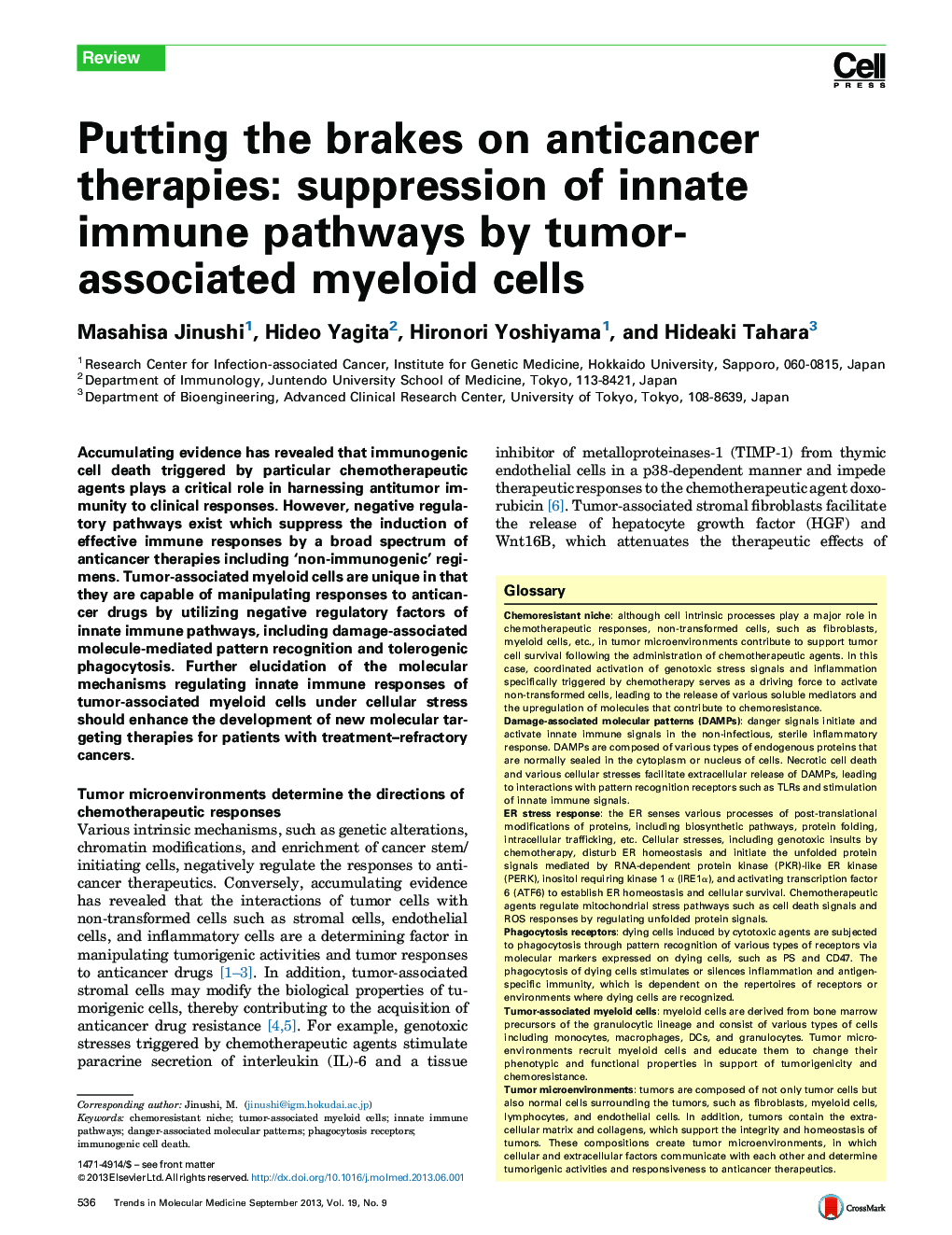| Article ID | Journal | Published Year | Pages | File Type |
|---|---|---|---|---|
| 2838588 | Trends in Molecular Medicine | 2013 | 10 Pages |
•Tumor-associated myeloid cells are key sentinels linking innate immunity with chemoresistance.•Tumor modulation of DAMP-mediated signals in myeloid cells induces chemoresistance.•Tumor regulation of phagocytic pathways in myeloid cells induces chemoresistance.•Targeting negative pathways in myeloid cells may overcome chemoresistance and clinical responses.
Accumulating evidence has revealed that immunogenic cell death triggered by particular chemotherapeutic agents plays a critical role in harnessing antitumor immunity to clinical responses. However, negative regulatory pathways exist which suppress the induction of effective immune responses by a broad spectrum of anticancer therapies including ‘non-immunogenic’ regimens. Tumor-associated myeloid cells are unique in that they are capable of manipulating responses to anticancer drugs by utilizing negative regulatory factors of innate immune pathways, including damage-associated molecule-mediated pattern recognition and tolerogenic phagocytosis. Further elucidation of the molecular mechanisms regulating innate immune responses of tumor-associated myeloid cells under cellular stress should enhance the development of new molecular targeting therapies for patients with treatment–refractory cancers.
